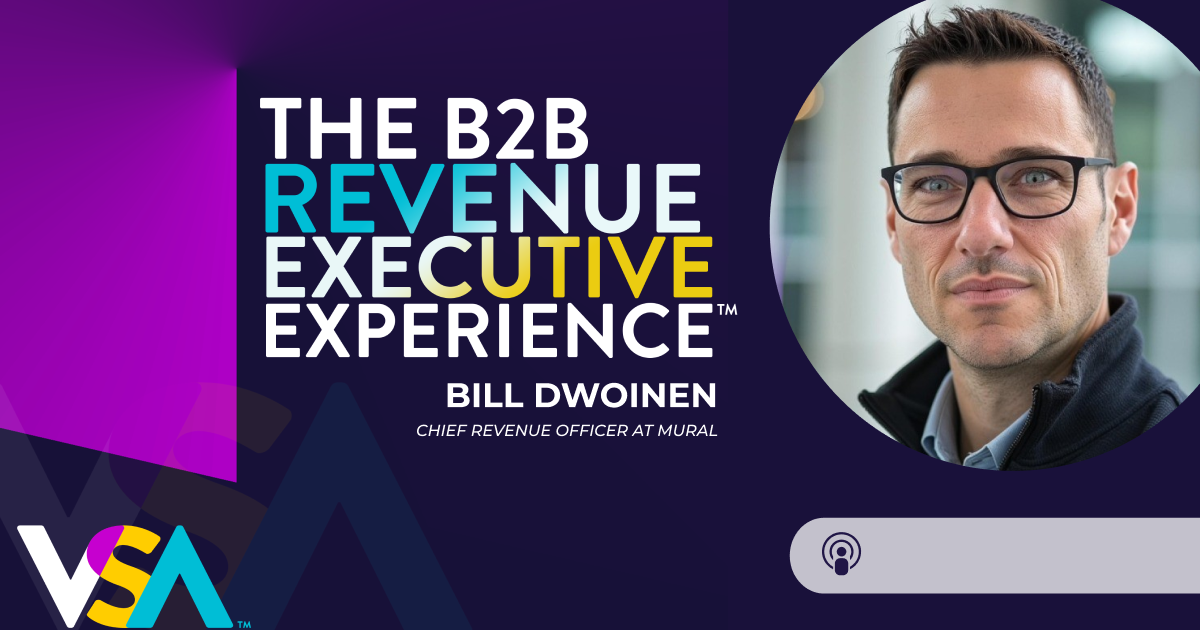Episode 311: The Seven Deadly Sins of Sales Training with PJ Nisbet
.png)
GUEST: PJ Nisbet, Managing Partner EMEA at ValueSelling Associates
– Subscribe to the podcast or write a review –
Stitcher – Google Podcasts – TuneIn – Apple Podcasts
Sales training plays a key role in the success of any business.
It equips sales professionals with the necessary skills and knowledge to effectively engage with customers and close deals.
If you're one of them, you've probably gone through sales training programs that start strong, but within weeks or months, they often lose momentum and fail to produce measurable results.
Therefore, we were wondering:
Why do some sales training initiatives programs fail while others deliver amazing results?
To help us with this today, we have PJ Nisbet, Managing Director of Nisbet Associates and Managing Partner EMEA at ValueSelling Associates.
How Can We Transform Sales Training from Costly Mistakes to Profitable Wins?
With an alarming statistic highlighting that 80% of sales training initiatives fail, despite billions being spent annually, it's clear there's a pressing need for improvement. PJ outlines a key strategy to counteract this trend: ensuring an all-out, cross-functional involvement across the organization.
This promotes alignment and understanding among all customer-facing roles while underlining the importance of having a unified framework and language to drive substantial sales improvements. Additionally, PJ stresses the role of senior leadership in championing these initiatives, ensuring their success by clearly communicating the why behind each program.
“8 out of 10 of these change programs fail, which is a pretty astronomical number, especially when you add to that the amount of money spent on sales training. I think the latest figures I saw are over 3 billion dollars every year spent on outside sales training providers in the world. So you've got all this money being spent, billions every year. And actually, 80% of these interventions fail. They have zero behavior change”.
PJ Nisbet, Managing Partner EMEA at ValueSelling Associates
Making Every Investment Count
To ensure lasting engagement and value from significant investment in initiatives like revenue organization overhauls, maintain a strong senior leadership involvement by setting regular, perhaps quarterly or monthly, check-ins to review progress against agreed deliverables and both leading and lagging indicators.
Early and consistent tracking allows for timely course corrections and reinforces the importance of the investment to senior leaders. Additionally, staying informed about any shifts in priorities at the senior level helps address risks to the program's relevance. Engage senior sponsors by briefly showcasing the core aspect of your initiatives, making the outcomes tangible and understandable.
The Power of WHY
Implementing change in an organization is no small feat. But success lies in effective communication and setting clear expectations. Start by explaining the why behind the change, ensuring everyone understands the real business reasons and personal benefits, which can lead to more engagement and acceptance.
Also, establish clear post-training expectations and communicate them openly, encouraging commitment to the change process. Highlight what individuals stand to gain, such as making their jobs easier to increase their potential earnings. Additionally, incentives and gamification should be considered to reward both the quality and quantity of adopting new practices.
“Human behavior is one of the hardest things I think you can do. So you need to make a proper communication plan. You need to explain to people why that is crucial, that you spend the time at the start of every workshop explaining and hopefully having those senior execs we were talking about explaining, “Why are we doing this? Why is this important?”
PJ Nisbet, Managing Partner EMEA at ValueSelling Associates
Kickstart Your Week with Success
Start your week on a high note with a Monday win call, where one of your team members showcases a successful strategy they've implemented, inspiring everyone to achieve their own successes. Additionally, consistent coaching from managers is essential. Investing just a few hours each month in personalized coaching can significantly enhance sales performance. However, you shouldn't just focus on numbers but on development and improvement, addressing specific skills needed to meet targets. Managers, make the time for these valuable coaching sessions. It's the most effective way to foster growth, reduce turnover, and keep your team engaged.
“If you spend 3 to 4 hours a month coaching your team or one-on-one coaching, you're getting a 15 to 20% improvement in sales performance”.
PJ Nisbet, Managing Partner EMEA at ValueSelling Associates
Simple Coaching and Smart Metrics
Even as little as three hours of monthly coaching can lead to an impressive boost of up to 17%. Integrating coaching with training elevates productivity by up to 88% while enhancing coaching programs can produce at least a 19% increase in revenue. PJ also touches on the necessity of measuring the right metrics, advocating for simplicity over complexity in tracking sales progress. By focusing on a few tangible benchmarks, organizations can more accurately measure the impact of their sales strategies and coaching efforts.
Now that you know how to avoid the seven deadly "sins" of sales training and achieve sales success, discover the full list of episodes at The B2B Revenue Executive Experience. If you enjoy the show, instructions to rate and review it are found here.
Explore More









